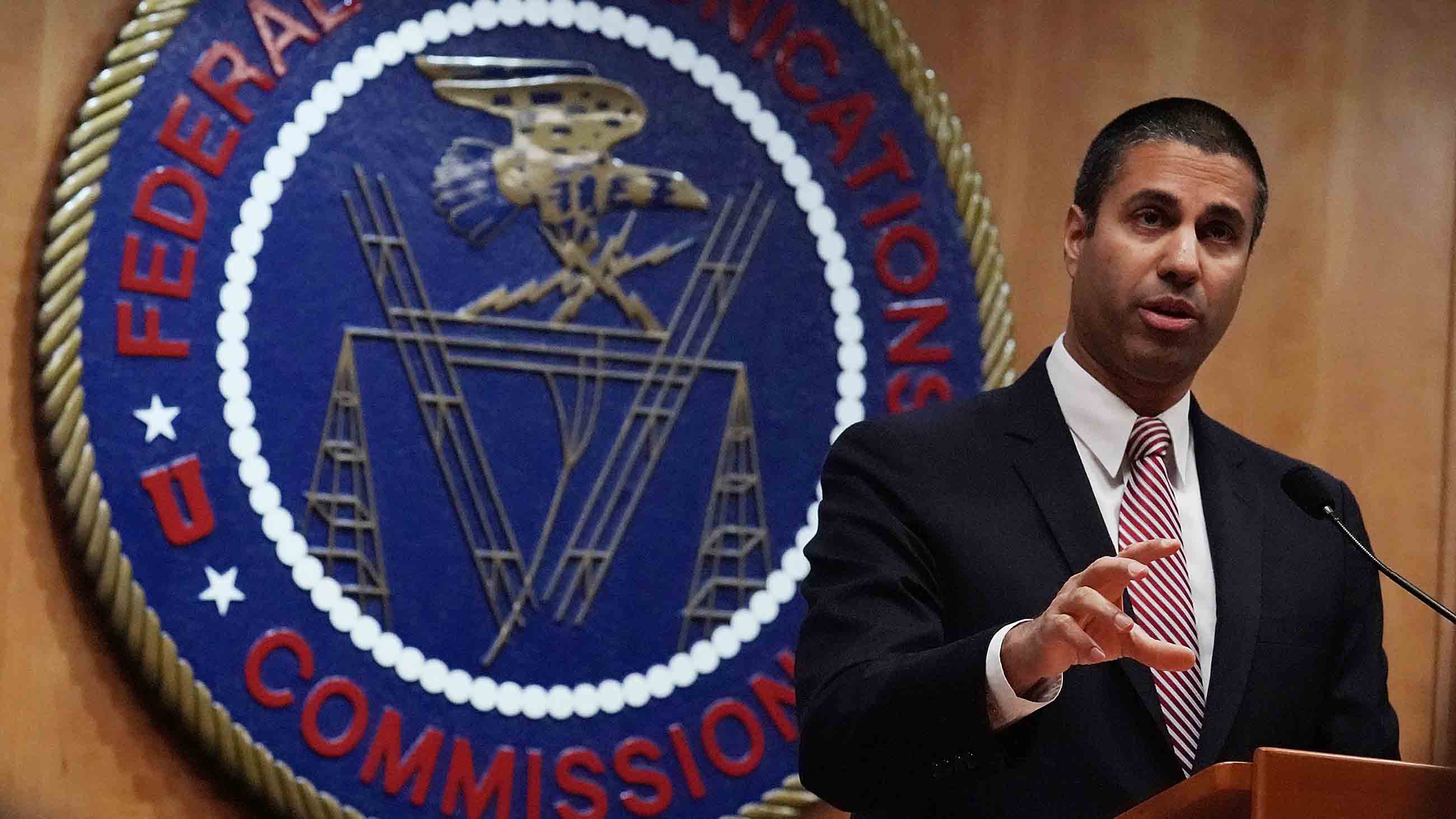In a widely criticized but expected move, the Federal Communications Commission repealed Obama-era regulations on Thursday that had prohibited internet service providers (ISPs) from, among other things, creating fast lanes and slow lanes on the internet — depending on how much website owners are willing to pay, or blocking access to particular websites altogether. The rules required ISPs like Comcast and Verizon to treat all traffic coursing over their networks the same, which internet advocates argue is crucial to maintaining a level playing field for companies seeking to do business online — and to keeping the internet affordable for everyday consumers.

Internet companies can now, at least in theory, mimic the way cable television providers bundle their services, charging a premium, for example, for access to certain high-demand websites like Facebook and Twitter. But FCC Chairman Ajit Pai has argued that this is unlikely, as these practices were not in place before net neutrality took effect in 2015. And while support for net neutrality is widespread and bipartisan, a video surfaced this week of Pai mocking public concerns over its repeal.
The FCC’s decision will take effect 60 days after it is published in the Federal Register. Attorneys general from New York, Washington, and other states, along with Democrats in Congress, have announced plans to sue to reinstate the rules.
Also in the news:
• After President Donald Trump announced in June that the United States — much to the chagrin of the rest of the world (and most Americans) — would withdraw from the Paris climate accord, France’s President Emmanuel Macron issued a cheeky retort: American and other foreign researchers were encouraged to relocate to France to help “make our planet great again.” This week, Macron made good on the stunt, offering 18 scientists, including many Americans, the first of about 50 three- to five-year grants, worth as much as $1.7 million each, for climate research dans la République. More than 250 scientists applied. (Science)
• In April, Undark reported that the science and culture magazine Nautilus was months behind on payments to some of its freelancers. In an open letter published on Wednesday, 19 of the magazine’s contributors say they are collectively owed $50,000 for stories published as far back as June of last year. Nautilus’s publisher John Steele posted his own open letter on Thursday, explaining how the magazine’s financial troubles came to be and assuring contributors and staff that they will be paid “every dollar we owe.” (Undark)
• Global panic over Zika has largely calmed since the epidemic spread throughout South and North America in 2015 and 2016. But for the families of infants affected by the mosquito-borne virus, the difficulties continue. In a report published on Thursday by the Centers for Disease Control and Prevention, researchers outlined the health and developmental issues faced by a group of 19 children born with Zika-related microcephaly. (STAT)
• Researchers have found that pregnant women living within about half a mile of hydraulic fracturing, or fracking, sites are 25 percent more likely to give birth to low-weight infants. The nine-year study, published Wednesday in the journal Science Advances, analyzed records of more than 1.1 million births in Pennsylvania, comparing infants born to mothers living at different distances from active sites and those born both before and after fracking was initiated at each site. (Los Angeles Times)
• Trump’s pick to head the Environmental Protection Agency’s Office of Chemical Safety and Pollution Prevention withdrew his name from consideration Wednesday, after both of North Carolina’s senators said they would vote against his nomination. The legislators cited Michael Dourson’s past work for companies including Dow Chemical and Chevron Corp. as giving him “no business overseeing our nation’s chemical safety laws.” (Associated Press)
• And finally: In what seems like it will be a constant retelling, months after Hurricane Maria hit Puerto Rico, much of the island is still without power or running water. People working on recovery projects on the ground say they see “two Puerto Ricos,” the fairly well-equipped city of San Juan on the island’s northeastern edge, and areas just miles away that remain completely devastated. (Bloomberg)









